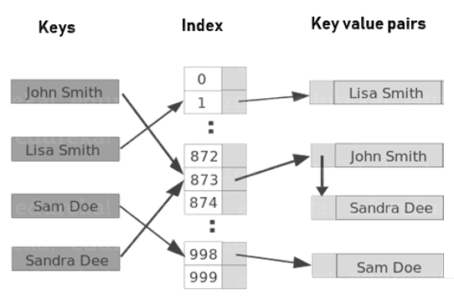Why Are Strings Immutable in Java? Essential Knowledge for Designers
Why Are Strings Immutable in Java? Essential Knowledge for Designers
Blog Article
What Is Unalterable Strings and How It Works
In the world of programming, recognizing the concept of immutable strings is extremely important for developing durable and safe and secure applications. Immutable strings refer to strings that can not be changed after they are produced, making sure information integrity and predictability within the code.
The Essentials of Immutable Strings
Immutable strings, as a fundamental principle in programs, are character sequences that can not be altered when they are produced. This means that when a string is designated a value, that worth can not be altered. In languages like Python and Java, strings are immutable things, resulting in different ramifications in terms of memory management and information stability.
Among the key benefits of immutable strings is that they supply a complacency in information control. Since the material of an unalterable string can not be changed, it ensures that the initial data remains intact, minimizing the danger of unintentional adjustments throughout program execution (Why are strings immutable in Java?). This residential or commercial property additionally streamlines debugging processes, as designers can rely on that when a string is defined, its value will certainly not be inadvertently changed
When a brand-new string is produced based on an existing one, instead than modifying the initial string, the brand-new value is kept individually. Generally, recognizing the basics of immutable strings is crucial for mastering programs ideas and optimizing code effectiveness.
Benefits of Immutable Strings
Structure upon the security and effectiveness benefits of immutable strings, their advantages reach enhancing code reliability and streamlining concurrent programs tasks. By being unalterable, strings can not be changed after creation, which eliminates the danger of unexpected modifications in the information they store. This integral immutability ensures that as soon as a string is created, its worth remains consistent throughout the program's execution, lowering the opportunities of insects triggered by unanticipated changes.
In addition, immutable strings add to code reliability by making it much easier to reason regarding the state of a program. Because strings can not be changed, programmers can trust that a string will constantly hold the very same worth, simplifying debugging and upkeep initiatives. This predictability brings about extra reputable and stable codebases.

Execution in Programs Languages
Within various programs languages, the unification of unalterable strings is a fundamental element that impacts just how information is managed and controlled within code frameworks. The application of immutable strings varies across different shows languages, with each language providing its own devices to support this principle.

In comparison, languages like C and C++ do not have integrated support for unalterable strings. Designers in these languages have to by hand implement immutability by implementing rules within their code to avoid direct modifications to string items.
Ideal Practices for Dealing With Immutable Strings
When managing unalterable strings in shows languages like Java and Python, sticking to best practices ensures reliable and safe data adjustment. Among the vital finest methods is to utilize StringBuilder or StringBuffer as opposed to straight manipulating strings, especially when taking care of extensive concatenation operations. These courses give mutable options for string adjustment, assisting to stay clear of unnecessary memory allowances and enhancing efficiency.
An additional best method is to use string interpolation or format works given by the language as opposed to hand-operated concatenation. This not only boosts readability but additionally help in preventing usual risks such as unintentional string alterations. In addition, when collaborating with delicate data such as passwords or API tricks, it is vital to prevent saving them as plain message in immutable strings. Utilizing safe storage space systems like char arrays or specialized collections for taking care of sensitive info aids alleviate protection risks linked with immutable strings.
Real-world Applications and Instances
Checking out sensible applications of unalterable strings in various industries exposes their substantial impact on data integrity and system dependability. In the medical care industry, unalterable strings play a vital role in making sure the security and discretion of person information. By protecting against unapproved alterations to delicate information such as medical documents and prescriptions, immutable strings aid keep conformity with strict personal privacy laws like HIPAA.
Economic institutions likewise profit from the immutable nature of strings to enhance the protection of client information and transaction records. Immutable strings aid stop fraud and unauthorized modifications to monetary info, offering a robust defense versus cyber threats and making sure the trust and confidence of customers.

Final Thought
To conclude, unalterable strings are fixed and unchangeable series of personalities that provide advantages such as thread security and enhanced performance in shows. They are executed in numerous shows languages to make certain data honesty and protection. Finest practices for dealing with unalterable strings include staying clear of straight adjustments and utilizing approaches that return new string things. Real-world applications of unalterable strings consist of information encryption, caching, and string control jobs.
Unalterable strings refer to strings that can not be changed after they are produced, ensuring data stability and predictability within the code. When a new string is developed based on an existing one, instead than customizing the initial string, the brand-new value is kept individually.In languages like Java and Python, strings are unalterable by default, suggesting that as soon as a string item is developed, its worth can not be transformed - Why are strings immutable in Java?. Best methods for functioning with immutable strings consist of avoiding straight adjustments and check this site out utilizing techniques that return new string objects. Real-world applications of unalterable strings consist of data encryption, caching, and string control tasks
Report this page